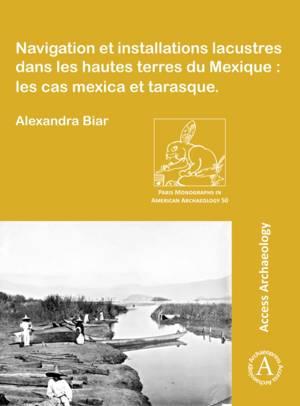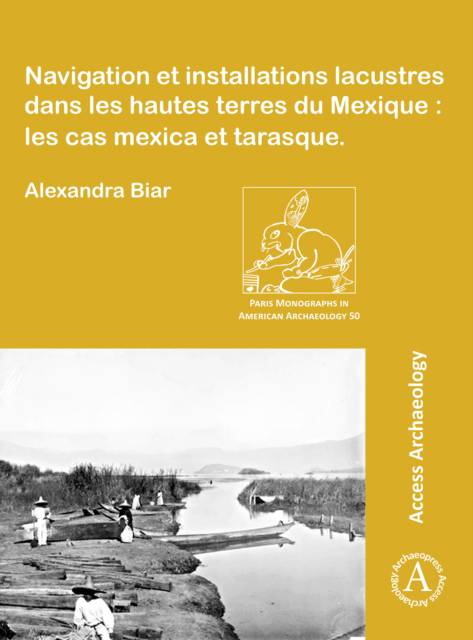
- Afhalen na 1 uur in een winkel met voorraad
- Gratis thuislevering in België vanaf € 30
- Ruim aanbod met 7 miljoen producten
- Afhalen na 1 uur in een winkel met voorraad
- Gratis thuislevering in België vanaf € 30
- Ruim aanbod met 7 miljoen producten
Zoeken
Navigation Et Installations Lacustres Dans Les Hautes Terres Du Mexique
Les Cas Mexica Et Tarasque
Alexandra Biar
€ 203,95
+ 407 punten
Omschrijving
In a cultural area where geography conspires against ease of exchange, Mesoamerican societies discovered technical answers adapted to their needs. At a time when the exchange of merchandise and goods relied mainly on human transport, some civilizations turned to a mystical aquatic environment: lakes. This research focuses on the practice of lake navigation and specific facilities that are associated with it. Due to the need for a wholistic approach, this research is situated in a multidisciplinary framework that combines archaeology, ethnology and ethnohistory. Its primary objective is to elaborate the framework of a new research field from the analytical and systematic study of a corpus of eclectic data, about the exploitation of water as a means of transport. In Mesoamerica, the greatest concentration of lake systems lies in the Mexican highlands. However, only the Mexico and Patzcuaro Basin were converted into real political economic and cultural centres, with the emergence of the Mexica Empire and Tarascan State in the Late Postclassic period (1350-1521). Why then do archaeologists, ethnologists and historians persist in ignoring the true importance of navigation in their study of the formation and organization of these two civilizations? To what extent can we extract, from the study of boats and lake installations, data that can open new research perspectives?
Specificaties
Betrokkenen
- Auteur(s):
- Uitgeverij:
Inhoud
- Aantal bladzijden:
- 308
- Taal:
- Frans
- Reeks:
Eigenschappen
- Productcode (EAN):
- 9781784919092
- Verschijningsdatum:
- 13/07/2018
- Uitvoering:
- Paperback
- Formaat:
- Trade paperback (VS)
- Afmetingen:
- 203 mm x 277 mm
- Gewicht:
- 1024 g

Alleen bij Standaard Boekhandel
+ 407 punten op je klantenkaart van Standaard Boekhandel
Beoordelingen
We publiceren alleen reviews die voldoen aan de voorwaarden voor reviews. Bekijk onze voorwaarden voor reviews.











